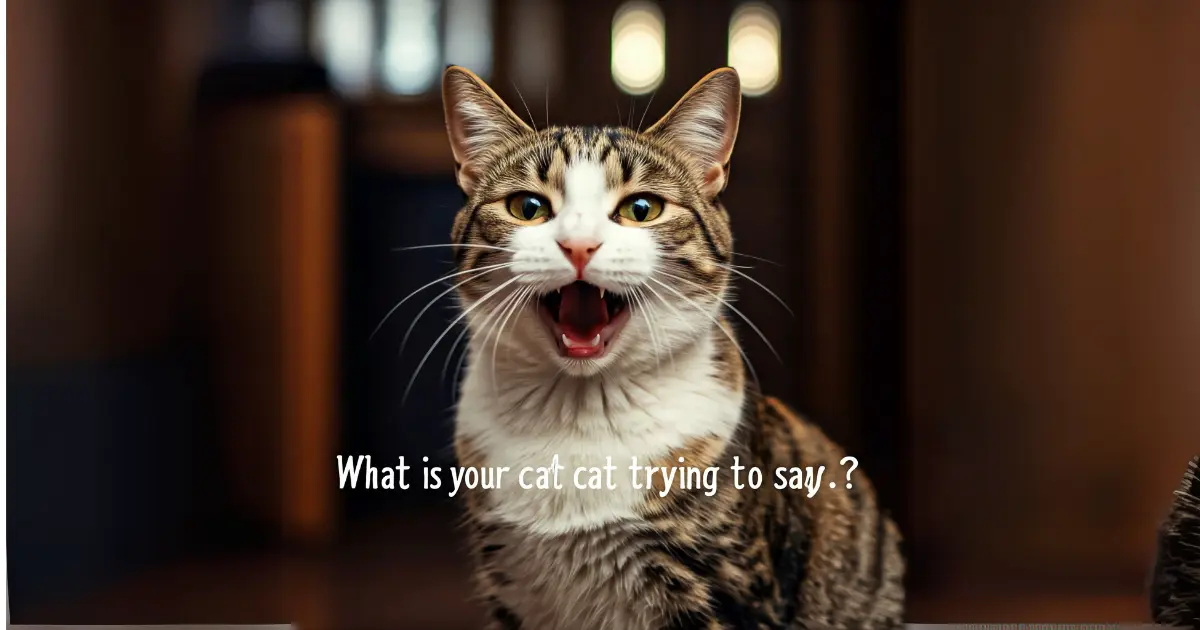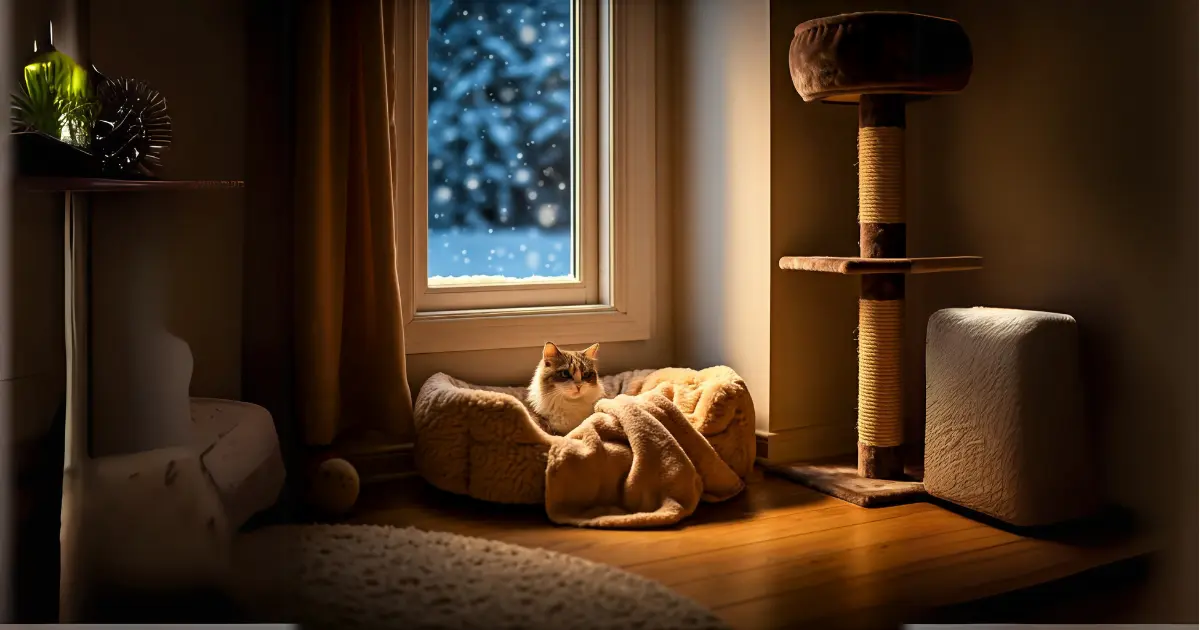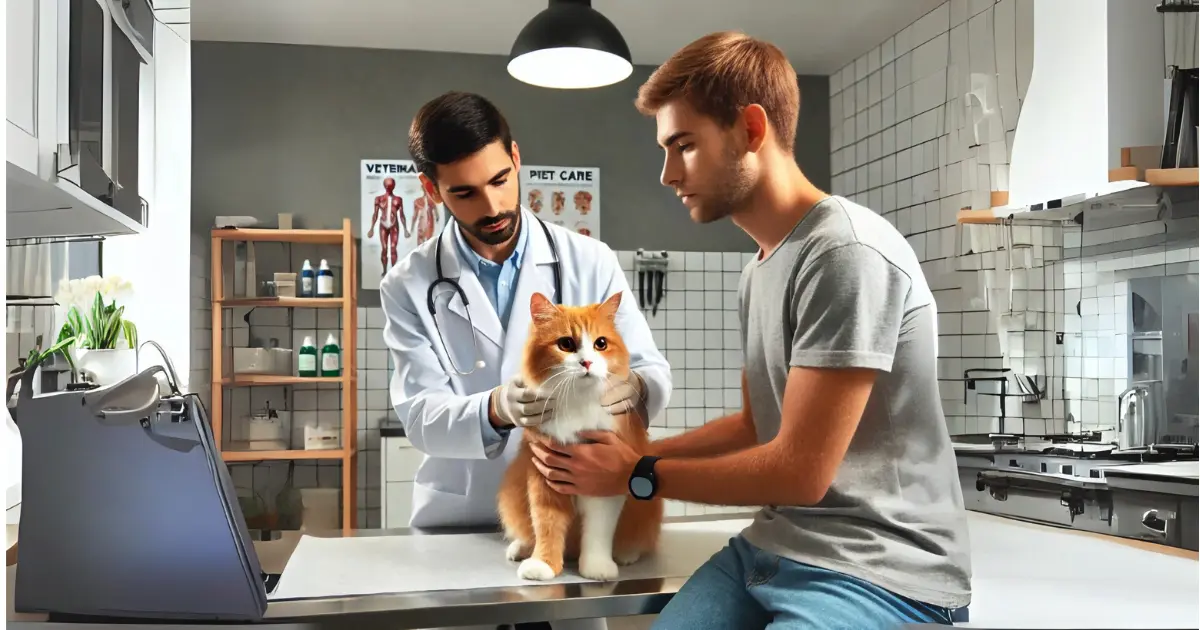Why Is My Cat Meowing More Than Usual? Understanding Feline Vocalizations
Published: 13 Jan 2025
Cats are known for their charming purrs and cute meows, but what happens when your cat starts meowing more than usual? Why is my cat meowing more than usual? Do you think it’s something to worry about? Let’s break it down and understand why your furry friend might be extra vocal.

Table of Contents
Why Do Cats Meow?
Cats meow to communicate, and each meow has a purpose. Here are some common reasons why your cat uses its voice:
- Attention-Seeking: Cats may meow to get your attention. They could be asking for food, playtime, or simply some love.
- Hunger: If mealtime is near, expect your cat to remind you—loudly! (Cat meowing for food constantly can be a typical behaviour.)
- Greeting: Some cats meow to say hello when you come home.
- Stress or Anxiety: A new pet, baby, or even rearranging furniture can stress your cat. Traveling, such as traveling with a cat in the car, can also be a significant source of stress for some cats. Cat behavior changes meowing often occur when their environment feels unfamiliar or unsafe.
- Pain or Illness: Cats may meow excessively if they’re in discomfort. Look for other signs of sickness, like hiding or changes in eating habits.

Why Is My Cat Meowing More Than Usual?
If your cat is suddenly meowing more, figuring out why is essential. Here are some important causes for a sudden increase in cat meowing:
1. Medical Issues
Excessive meowing could signal health problems, such as:
- Hyperthyroidism causes increased hunger and energy, leading to more meowing.
- Pain or Discomfort: Cats in pain may cry out more often.
- Cognitive Decline: Older cats can experience confusion, leading to vocalizations.
What to do: If you think your cat might have a health problem, visit the vet for a check-up. Cat vocalization causes like pain or hyperthyroidism require professional attention.
2. Boredom or Loneliness
Cats are independent but still need interaction. A bored cat may meow to get your attention. Cat meowing for attention solutions include engaging them in playtime or providing interactive toys.
What to do:
- Set aside time for daily play sessions.
- Provide puzzle feeders or toys to keep your cat entertained.
3. Changes in the Environment
A new pet, baby, or even rearranging furniture can stress your cat. Cat behaviour changes meowing often occur when their environment feels unfamiliar or unsafe. Create a safe space where they can relax without disturbance. If it’s cold, make sure to keep your cat warm in winter to help them feel comfortable and stress-free.
What to do:
- Give your cat time to adjust.
- Provide a quiet and comfortable area where they can rest undisturbed.
4. Heat (For Unspayed Females)
If your cat is unspayed, she might be in heat. Cats in heat meow loudly to attract mates. Understanding cat vocalizations during this time can help you manage their behaviour.
What to do: Spaying can solve this issue and prevent unwanted litter.For more details on the benefits of spaying and neutering your cat, visit Petfinder’s guide on spaying and neutering to learn more about why it’s an essential step in responsible pet ownership.

Cat Meowing at Night
A common complaint among cat owners is their cat meowing at night. This might happen because:
- They’re bored and want attention.
- They’re hungry.
- They’re anxious or stressed.
What to do:
- Play with your cat before bedtime to tire them out.
- Ensure their food and water bowls are complete.
- Provide a cosy, quiet space for them to sleep.
How to Address Excessive Meowing
Here are some tips to manage your cat’s vocalizations:
1. Check for Medical Issues
- Always rule out health problems first. A vet visit can identify underlying conditions.
Pain or discomfort, such as dental issues, can make your cat vocal. Regularly clean your cat’s teeth to prevent oral health problems.
2. Stick to a Routine
- Cats thrive on routine. Feed, play, and interact with them simultaneously every day.
3. Provide Mental Stimulation
- Toys, scratching posts, and puzzle feeders can reduce boredom and curb excessive meowing.
4. Avoid Reinforcing Behavior
- Don’t reward excessive meowing with attention or treats. Instead, respond when your cat is calm.

When to See a Vet
If your cat’s meowing is sudden, loud, or accompanied by other unusual behaviour (like not eating or hiding), visit your veterinarian. Sudden vocal changes can signal serious health concerns.
Final Thoughts
Cats vocalize for many different reasons, from seeking attention to expressing discomfort. Understanding cat vocalizations can help strengthen your bond and ensure their well-being.
Does your cat meow more than usual? Observe their behaviour, address their needs, and when in doubt, consult your vet. With patience and care, you’ll figure out what your feline friend is trying to tell you!
FAQ
1. How can I keep my cat cozy during winter?
Ensure your cat has a warm, comfortable bed placed away from drafts. Providing blankets and a sunny spot by a window helps them stay warm and content.
2. Do cats feel cold indoors during winter?
Yes, cats can feel cold if your home is not adequately heated. Look for signs like curling up tightly or seeking warm spots to determine if they need extra warmth.
3. What is the best way to entertain an indoor cat during winter?
Interactive toys, scratching posts, and window perches for bird watching can keep your cat engaged. Rotate toys regularly to maintain their interest.
4. Should I adjust my cat’s diet in winter?
If your cat is less active in winter, avoid overfeeding to prevent weight gain. Consult your vet if you’re unsure about adjusting their portions.
5. How can I protect my cat’s paws from the cold?
Keep your cat indoors to prevent exposure to icy surfaces or chemicals like antifreeze. Outdoor cats should wipe their paws when they come inside to remove debris or salt.
6. Is it normal for my cat to sleep more in winter?
Cats may sleep more in colder months due to shorter daylight hours. It’s a natural response, but make sure they stay active when awake.
7. Why does my cat sit by the window even when it’s cold?
Cats love watching the outdoors, especially snow or moving objects like birds. Sitting by the window provides entertainment and mental stimulation despite the cold.

- Be Respectful
- Stay Relevant
- Stay Positive
- True Feedback
- Encourage Discussion
- Avoid Spamming
- No Fake News
- Don't Copy-Paste
- No Personal Attacks



- Be Respectful
- Stay Relevant
- Stay Positive
- True Feedback
- Encourage Discussion
- Avoid Spamming
- No Fake News
- Don't Copy-Paste
- No Personal Attacks





